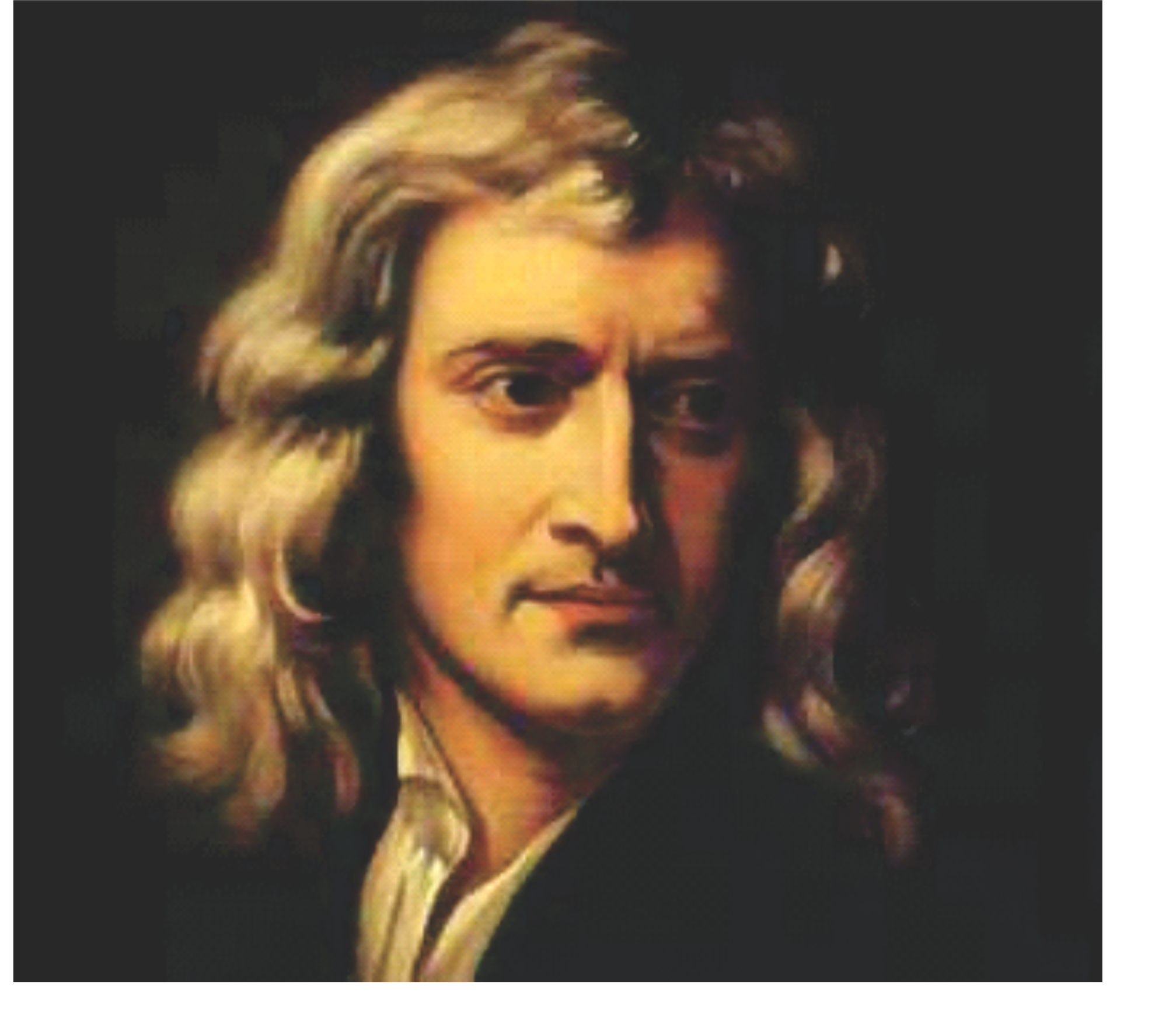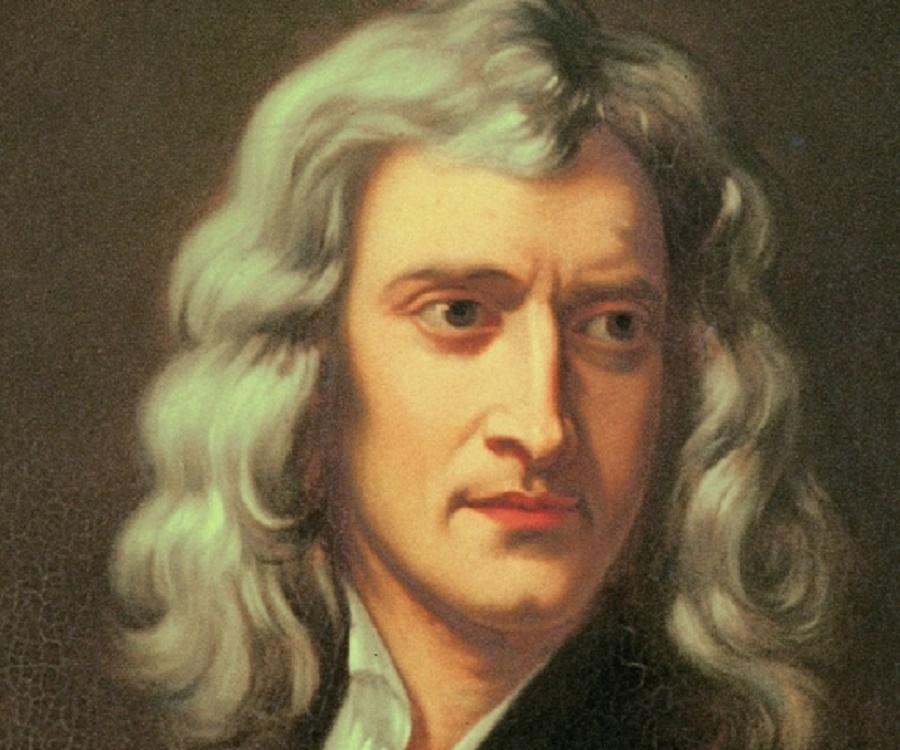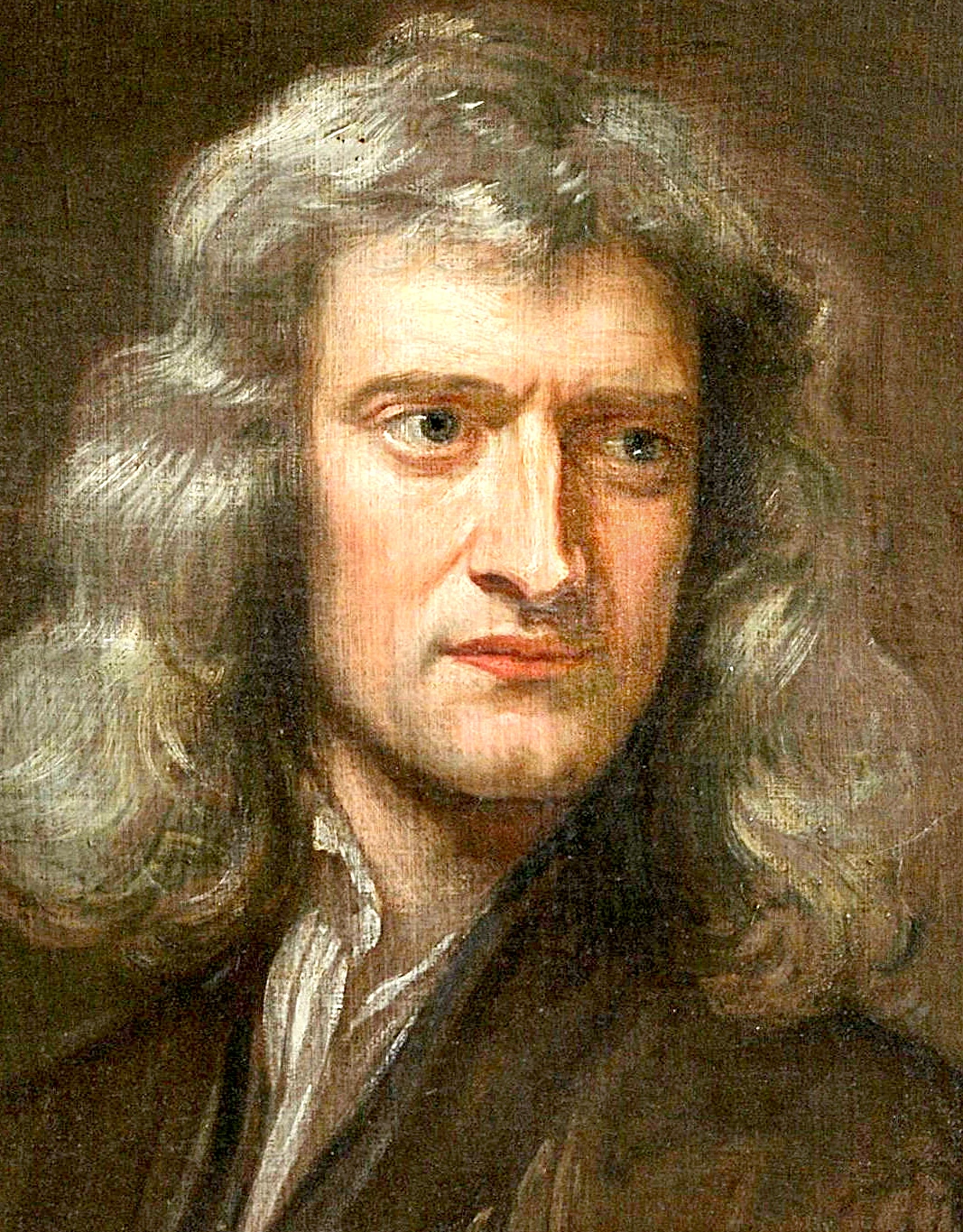Newton Knights Flag - Unveiling A Scientific Mind
Imagine, for a moment, a figure whose very presence shifted the way we looked at the universe, a person whose thoughts became the very foundation for so much that came after. This individual, born rather tiny, grew into a truly immense intellect, someone whose influence still reaches across the centuries. We are, you know, talking about a pivotal person in the history of ideas, someone whose work is still very much with us, shaping our world in ways we often don't even think about.
His ideas, you see, laid the groundwork for so much of what we call classical physics. It's almost as if he provided the very blueprint for how things move and interact, giving us a remarkably clear picture of the cosmos. This kind of impact, honestly, is quite rare, a testament to a mind that saw connections where others saw only separate pieces, so.
So, as we explore the life and work of this remarkable individual, we'll touch upon his incredible contributions, the very principles that govern our physical world. It's a chance, really, to appreciate the sheer depth of thought that went into shaping our modern scientific outlook, a story that still, in a way, feels very fresh and relevant.
- Tiffany Diamond Solitaire Necklace
- L Oreal Age Perfect Balm
- Name Of The Game Mamma Mia
- Jonny Marlow
- Storage For Pool Toys
Table of Contents
- A Glimpse at Isaac Newton's Early Life and Background
- How Was Isaac Newton a Pivotal Figure?
- Exploring Newton's Laws of Motion
- The Universal Gravitation of Newton's Ideas
- Did Newton Invent Calculus and Explain Optics?
- Newton's Role in Modern Physical Science
- From a Tiny Baby to a Massive Intellect: The Story of Newton
- How Did Newton Let Phenomena Decide Theory Elements?
A Glimpse at Isaac Newton's Early Life and Background
Isaac Newton, a person whose name is often spoken with a certain reverence in scientific circles, was, in fact, an English polymath. He was, you know, active across a good many fields, showing a wide range of talents and interests. This was someone who didn't just stick to one area of study, which is pretty amazing when you think about it. He was, for instance, a mathematician, someone who dealt with numbers and patterns in a profound way. He was also a physicist, which means he explored the fundamental principles of how the physical world works. Beyond that, he worked as an astronomer, looking up at the stars and planets, trying to make sense of their movements and relationships. It's almost like he had a hand in nearly every major scientific pursuit of his time, which is quite something, really.
His birth, it turns out, happened in a rather small hamlet located in Lincolnshire, England. He was, apparently, born a bit early, arriving two to three months before he was expected on January 4, 1643. His mother, as a matter of fact, described him as a tiny baby, suggesting he was quite small at birth. This early start, in some respects, makes his later growth into such a monumental intellect even more remarkable, don't you think? He truly became someone whose ideas would loom large for centuries to come, so.
He also engaged in pursuits like alchemy, which was a sort of early form of chemistry, and he was a theologian, too, someone who studied religious beliefs and practices. This blend of interests, you know, really paints a picture of a mind that was constantly seeking to understand the world from many different angles, a truly inquisitive spirit. It's not every day you find someone with such a broad array of intellectual activities, is that right?
- Jon Benet Autopsy Photos
- Blake Shelton And Miranda Lambert Duet
- Names Of Prince
- Balenciaga Hair Clips
- Murder Ames Iowa
Personal Details and Bio Data of Isaac Newton
| Full Name | Sir Isaac Newton |
| Date of Birth | January 4, 1643 (O.S. December 25, 1642) |
| Place of Birth | Woolsthorpe-by-Colsterworth, Lincolnshire, England |
| Date of Death | March 31, 1727 (O.S. March 20, 1727) |
| Nationality | English |
| Known For | Laws of Motion, Universal Gravitation, Calculus, Optics, Scientific Revolution |
| Fields | Mathematics, Physics, Astronomy, Alchemy, Theology |
How Was Isaac Newton a Pivotal Figure?
Isaac Newton, the rather brilliant physicist and mathematician, truly changed our way of looking at the universe. He was, in a way, a central character, a pivotal figure who helped shape the path of science for generations. His contributions, you know, were so profound that they genuinely altered our comprehension of the cosmos, making things clear in ways they hadn't been before. He was, basically, a key person in the scientific revolution that took place during the 17th century, a time of huge intellectual shifts.
He is, you could say, renowned for putting together the laws of motion. These laws, pretty much, tell us how objects move and how forces affect them. He also formulated the law of universal gravitation, which explains why things fall to the ground and why planets orbit the sun. These ideas, you see, really provided the basic structure for what we now call classical physics. It's almost like he built the very framework upon which so much else was constructed, fundamentally changing things forever.
For nearly three hundred years, people have seen Newton as the prime example of modern physical science. His achievements, honestly, in trying things out and observing them were just as groundbreaking as his theoretical work. He was, basically, someone whose impact was felt far and wide, truly a central figure in the grand story of scientific progress.
Exploring Newton's Laws of Motion
When we talk about Isaac Newton, it's hard not to immediately think about his laws of motion. These aren't just some abstract ideas; they are, in fact, fundamental principles that describe how everything moves, from a ball rolling down a hill to planets circling a star. He was, you know, the person who really put these ideas into a clear, understandable form, making them accessible for scientific study.
His work, quite simply, provided a systematic way to think about forces and their effects. Before Newton, people had some ideas, but he gave us a coherent system. These laws, you see, explained why things speed up or slow down, why they change direction, and how they interact with each other. It's pretty amazing, actually, how he managed to capture such complex phenomena in just a few straightforward statements, don't you think?
These principles, too, became the very foundation for much of physics for centuries. They allowed scientists and engineers to predict and control motion with remarkable accuracy. It’s almost like he gave us the instruction manual for the mechanical universe, which is, in a way, quite a feat.
The Universal Gravitation of Newton's Ideas
Beyond the laws of motion, Isaac Newton's most famous work, you know, really involved forces, particularly the development of a universal law of gravity. This was, in some respects, a truly groundbreaking concept, one that connected the falling apple to the orbiting moon. He realized that the same force that pulls things to the Earth also keeps the planets in their paths around the sun.
This idea, this universal law of gravitation, was, you know, a game-changer. It meant that the rules governing the heavens were the same as the rules governing things here on Earth. It brought a kind of unity to the universe that hadn't been fully appreciated before. It was, basically, a huge step in our collective comprehension of how the cosmos operates.
His formulation of this law, pretty much, showed how every bit of matter in the universe attracts every other bit of matter. The strength of this pull, it turns out, depends on how much stuff is there and how far apart they are. This concept, you know, truly changed our view of the universe, making it a more predictable and understandable place, which is quite something.
Did Newton Invent Calculus and Explain Optics?
Yes, as a matter of fact, Sir Isaac Newton is credited with inventing calculus, a very powerful mathematical tool. This wasn't just some minor addition to mathematics; it was, you know, a whole new way of dealing with change and motion, something absolutely essential for understanding physics. It allowed for calculations that were simply not possible before, opening up entirely new avenues for scientific inquiry.
He also, you know, explained optics, which is the study of light. He showed that white light is actually made up of a spectrum of colors, something he demonstrated by passing light through a prism. This was, basically, a huge discovery that changed how people thought about light and color. His work in optics was, honestly, just as important as his work in gravity and motion, showing his incredibly broad intellectual reach.
These contributions, both in mathematics and in the study of light, really highlight his genius. He wasn't just a physicist; he was, in some respects, a true polymath, someone who excelled in multiple, seemingly different areas. It's pretty clear, you know, that his mind was always seeking to uncover the underlying principles of the world around him.
Newton's Role in Modern Physical Science
For nearly three hundred years, Isaac Newton has been seen as the foundational example of modern physical science. His work, you know, truly set the standard for how scientific inquiry should be conducted. He didn't just come up with theories; he also, pretty much, showed how to test them through careful observation and experimentation.
His achievements in experimental investigation were, in a way, just as innovative as his theoretical breakthroughs. He wasn't afraid to get his hands dirty, so to speak, in order to gather evidence and confirm his ideas. This approach, you see, was absolutely crucial for the development of modern science, emphasizing the importance of empirical data.
He provided, basically, a blueprint for future generations of scientists, showing them how to combine mathematical rigor with careful observation. It's almost like he drew the map for how to explore the physical world in a systematic and reliable way, which is, honestly, a huge legacy to leave behind.
From a Tiny Baby to a Massive Intellect: The Story of Newton
Sir Isaac Newton, born especially tiny, grew into a truly massive intellect. It's quite remarkable, you know, to think about his humble beginnings as a premature infant in a small village. Yet, from those small beginnings, a mind emerged that would, in a way, reshape our collective understanding of the universe.
His findings on gravity, light, motion, mathematics, and so much more still loom large in our world. His ideas are, basically, the bedrock of so many scientific and technological advancements that we take for granted today. It's as if his thoughts cast a very long shadow, influencing everything from space travel to the design of everyday machines.
He truly was, you know, a pivotal figure in the fields of physics and mathematics. His insights, you see, laid the groundwork for classical mechanics, a framework that describes the motion of objects from the smallest particles to the largest galaxies. It’s pretty clear, really, that his impact was immense and continues to resonate, even now.
How Did Newton Let Phenomena Decide Theory Elements?
Newton's commitment to letting phenomena decide the elements of theory was, you know, a very important aspect of his scientific method. He believed that observations and experiments should guide the development of ideas, rather than theories being based purely on speculation. This approach was, basically, quite revolutionary for its time.
It meant that questions had to be left open when no available phenomena could decide them. He was, in a way, comfortable with uncertainty if the evidence wasn't there yet. This kind of intellectual honesty, you see, is a hallmark of truly rigorous scientific thinking. He wasn't going to just make things up; he waited for the world to show him.
This dedication to empirical evidence, honestly, helped establish the scientific method as we know it today. It emphasized the importance of observation and experimentation in building a reliable body of knowledge. It's pretty clear, you know, that this aspect of his approach was just as significant as his specific discoveries, guiding how science would be done for centuries.
- Judy Trammell Dallas Cowboy Cheerleader
- Nelly Furtado Boobs
- Kate Middleton Formal Gowns
- 69th Academy Awards
- Nate Bargatze Sitcom

The Grand Secret of the Whole Machine – Ramparts of Civilization

Isaac Newton Biography - Facts, Childhood, Family Life & Achievements

Isaac Newton | Doblaje Wiki | Fandom